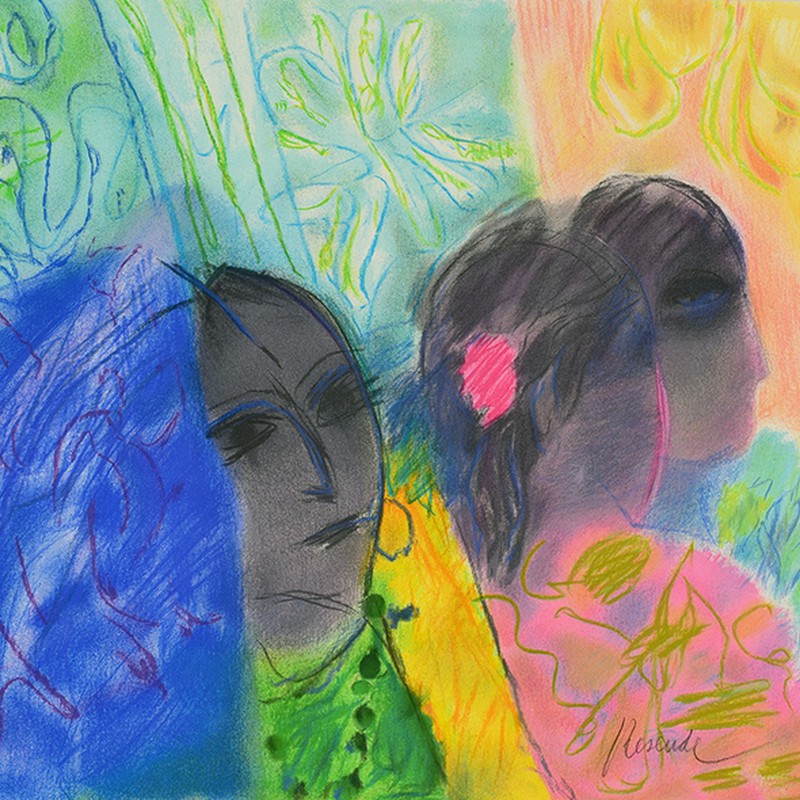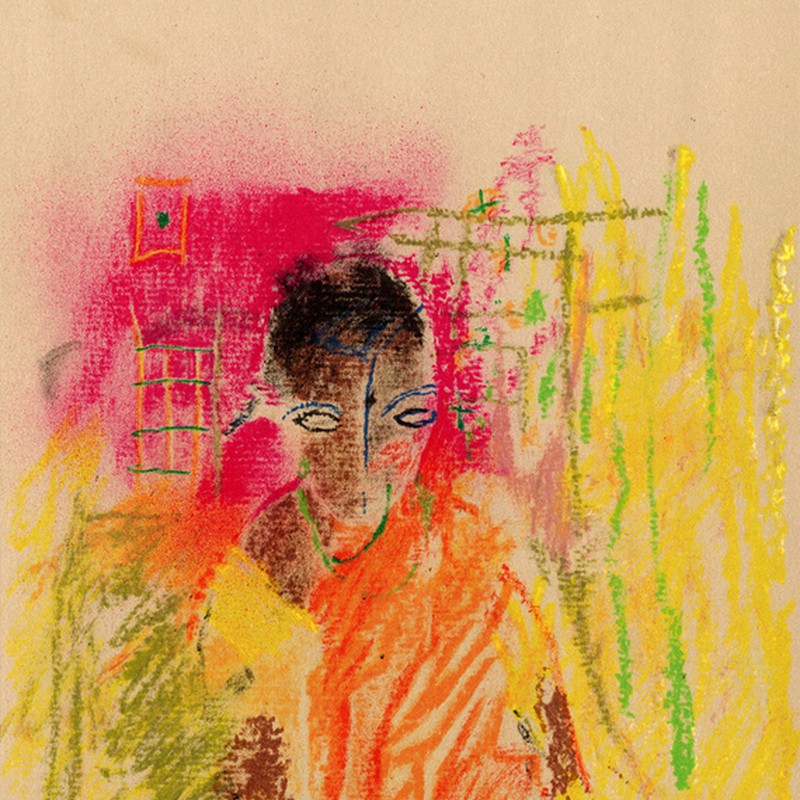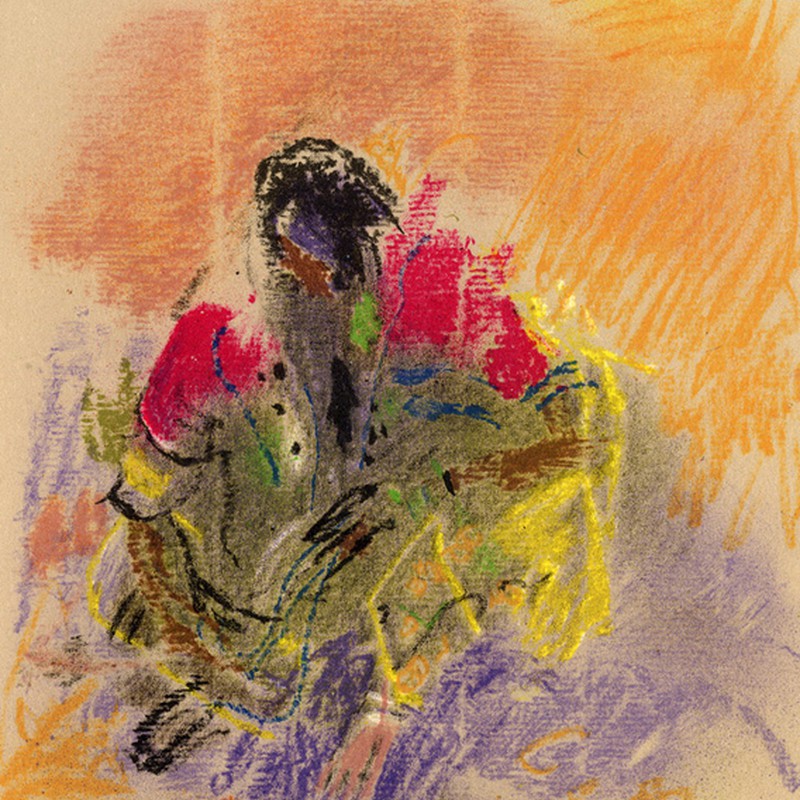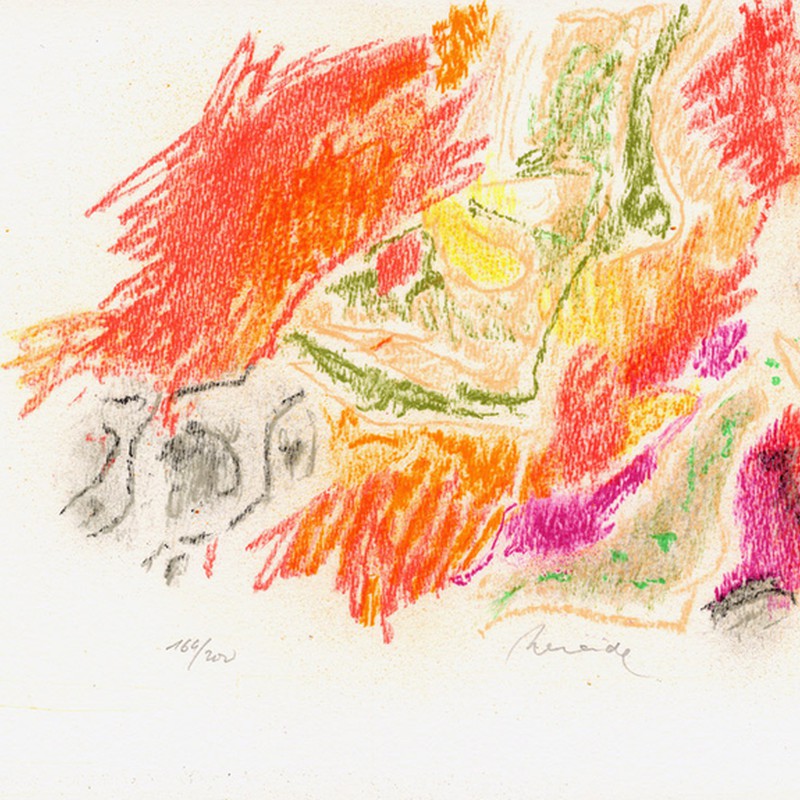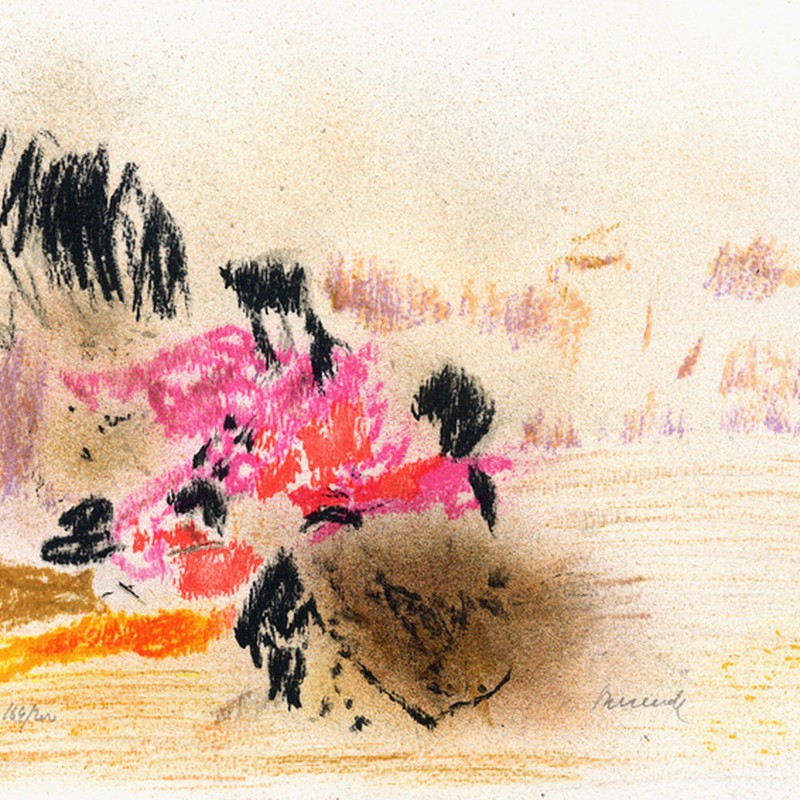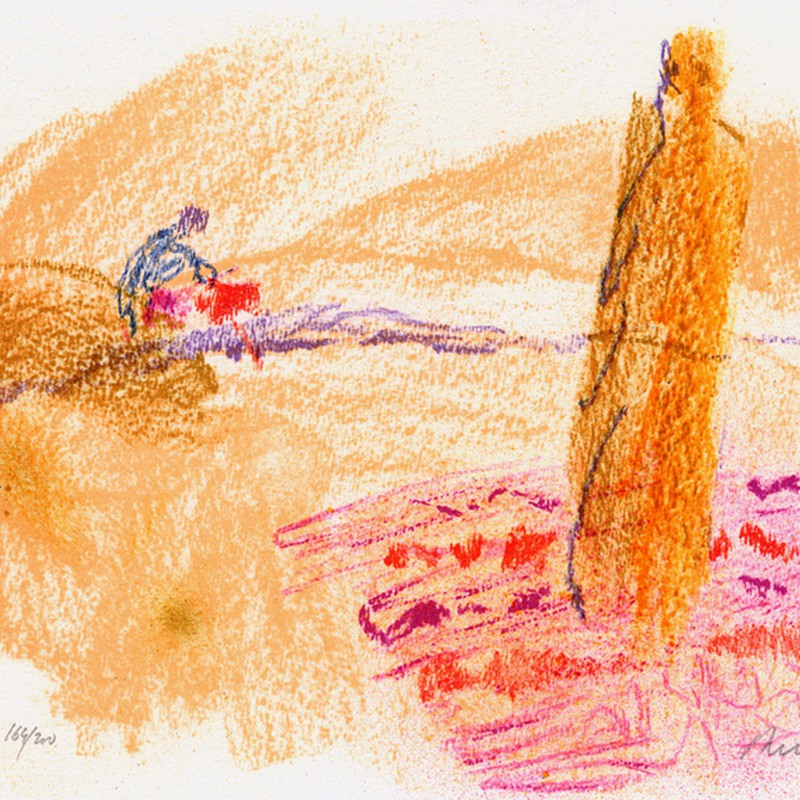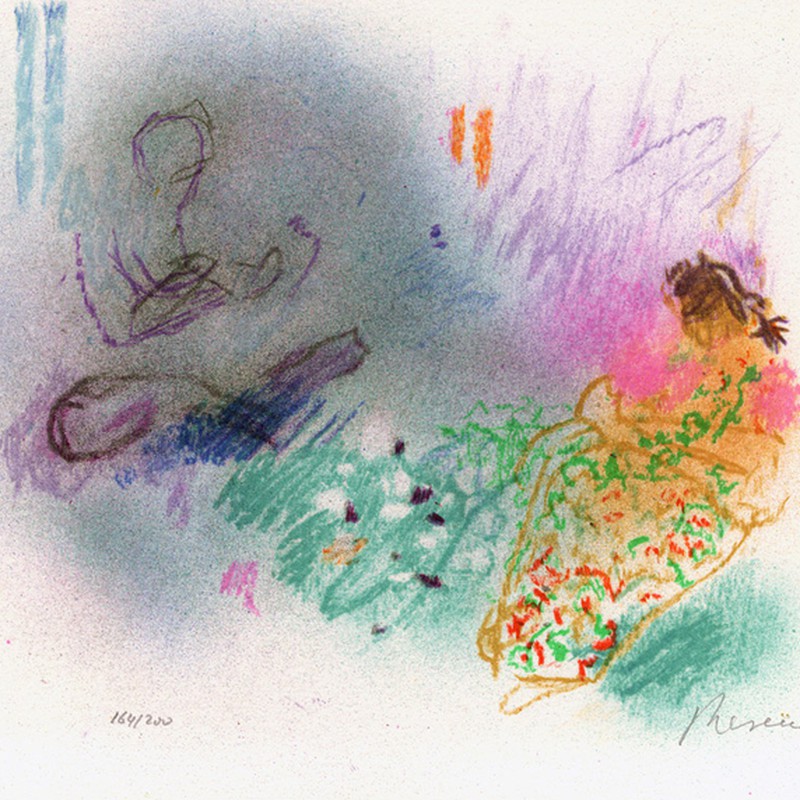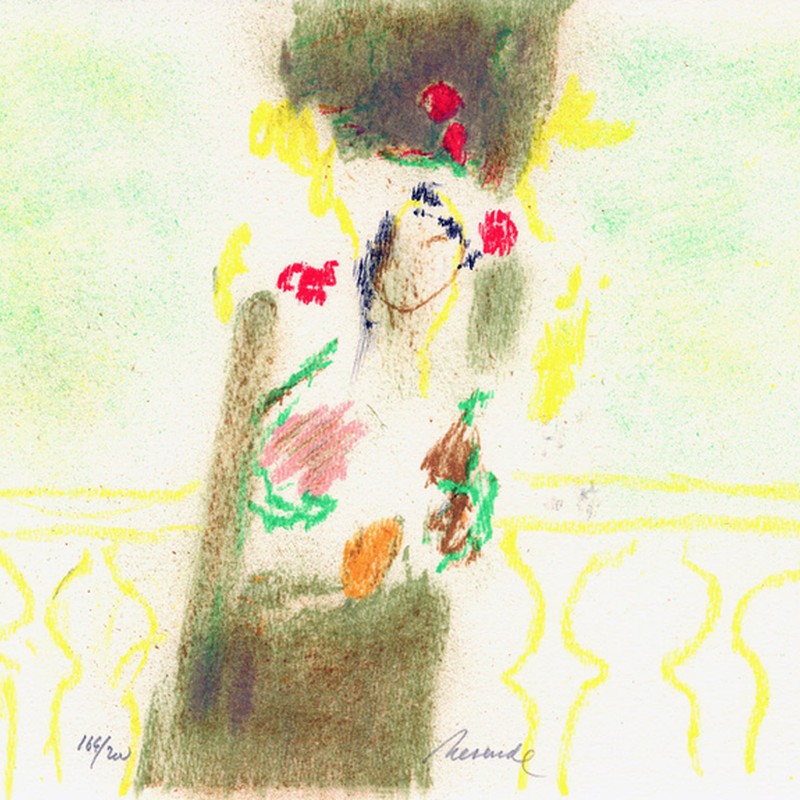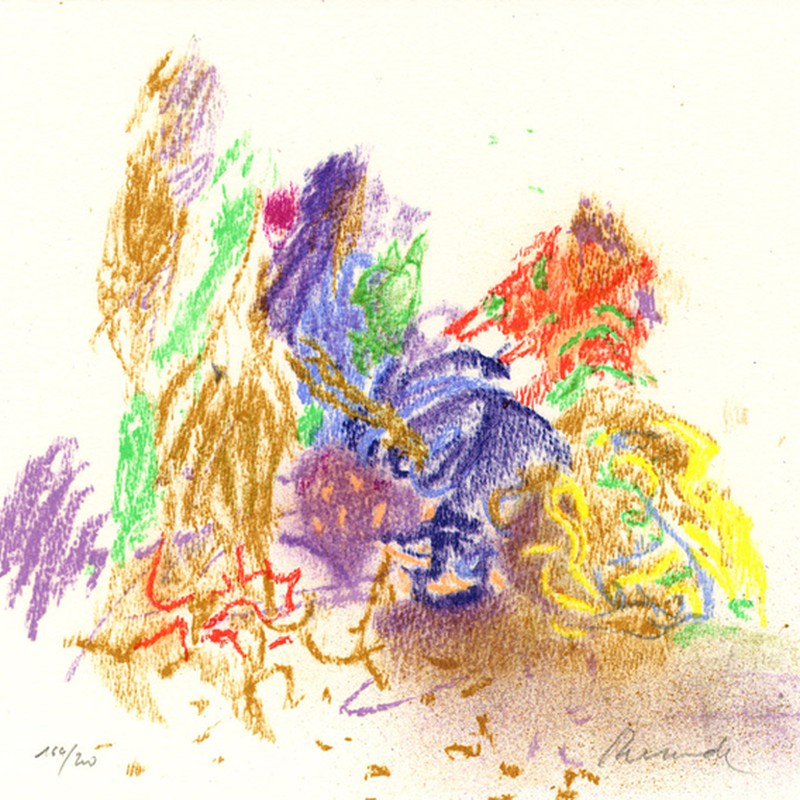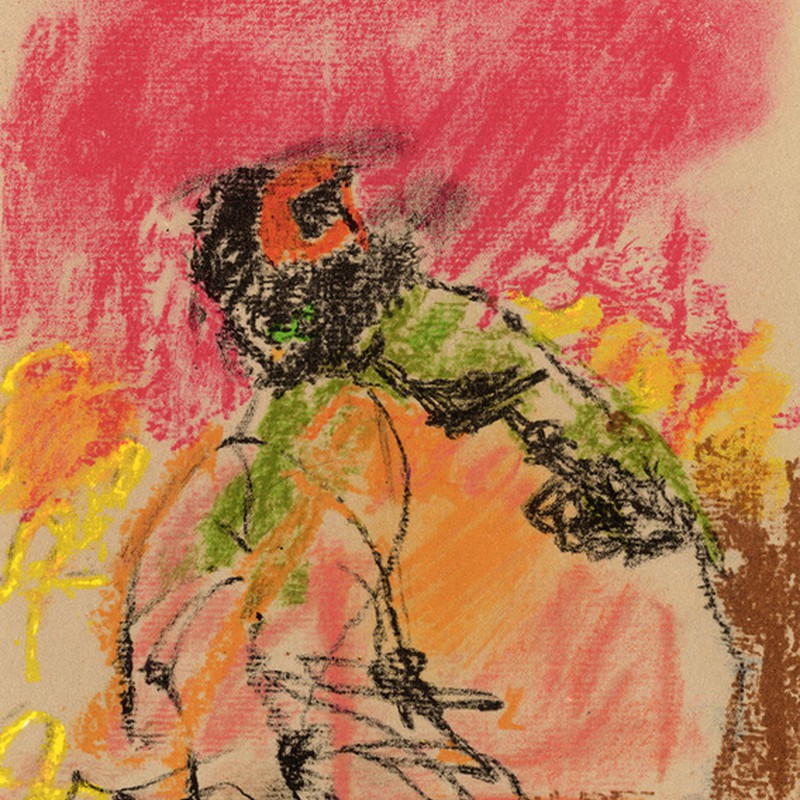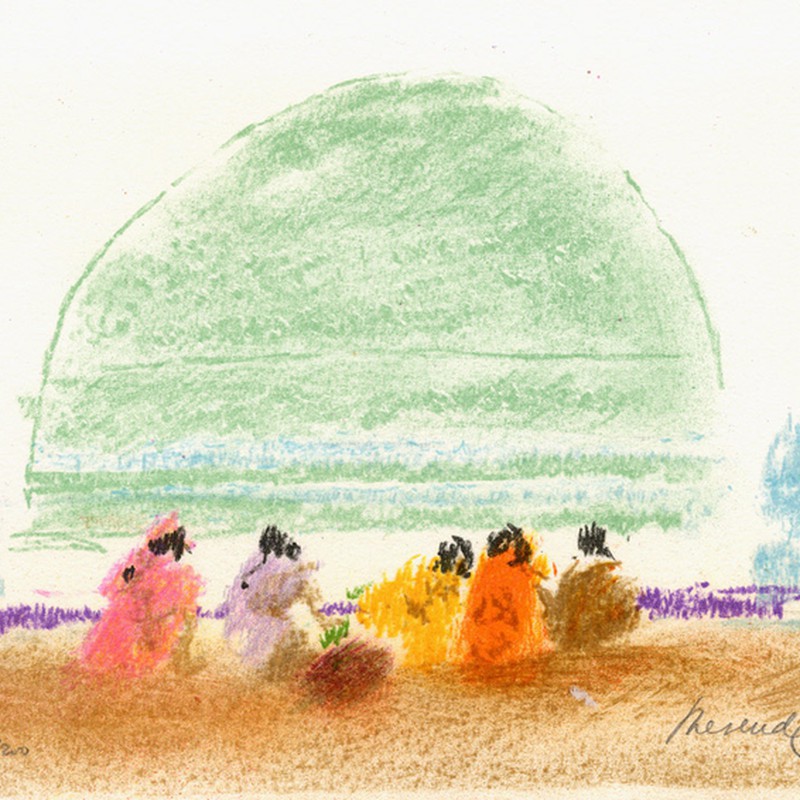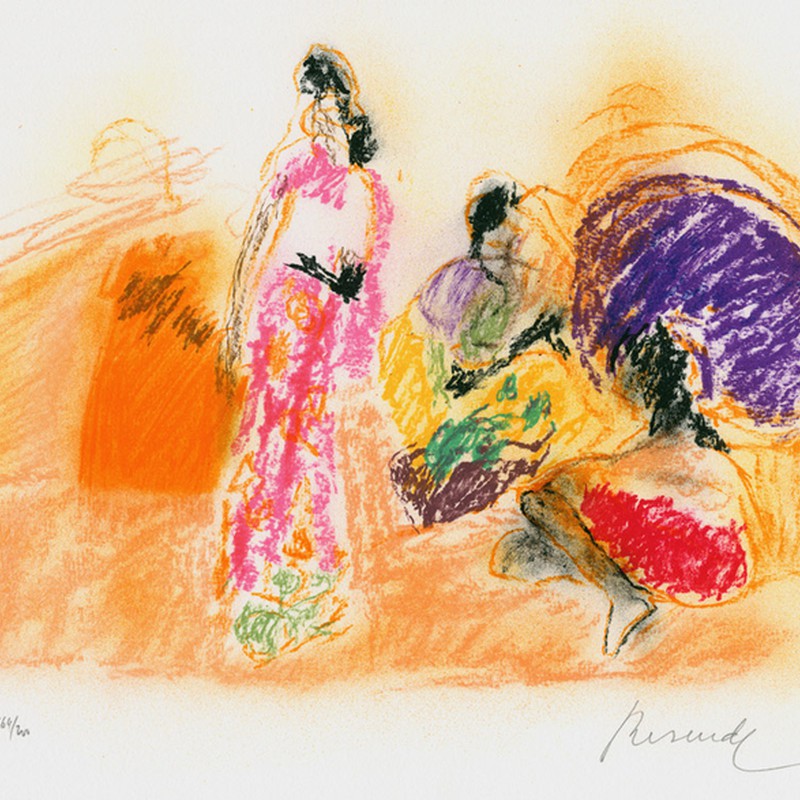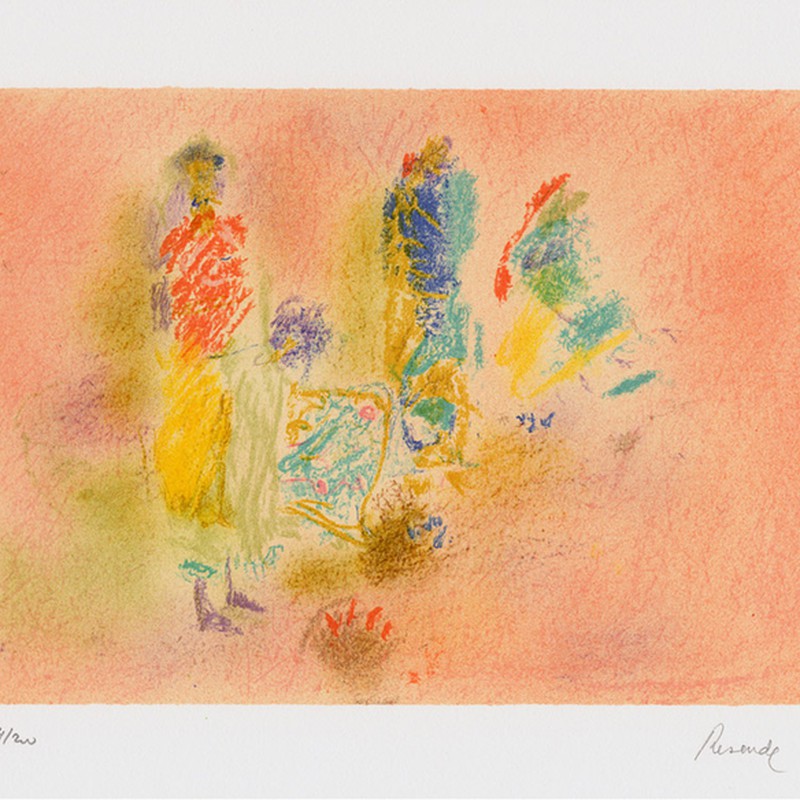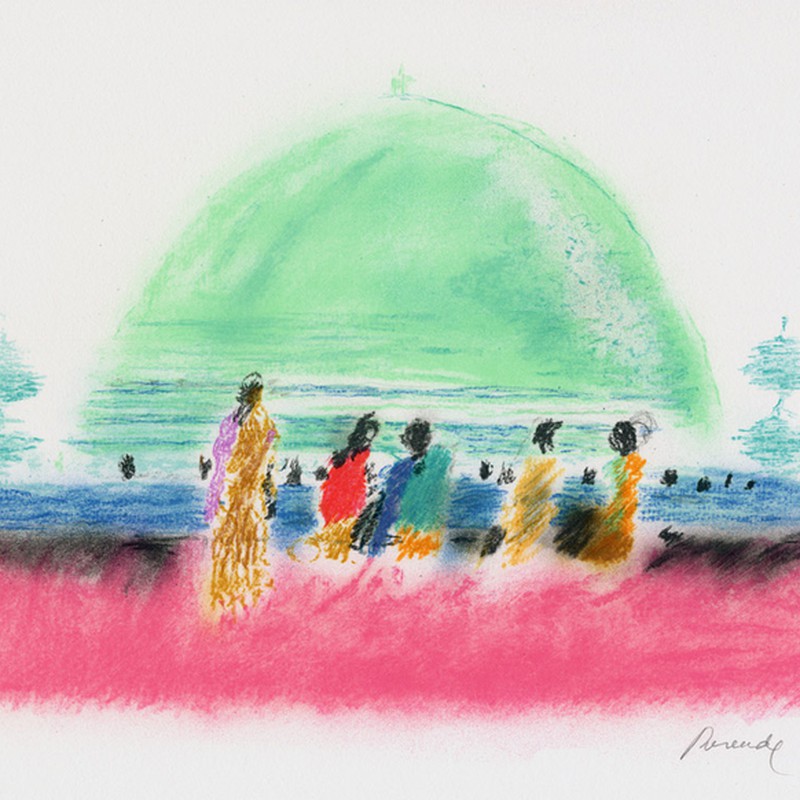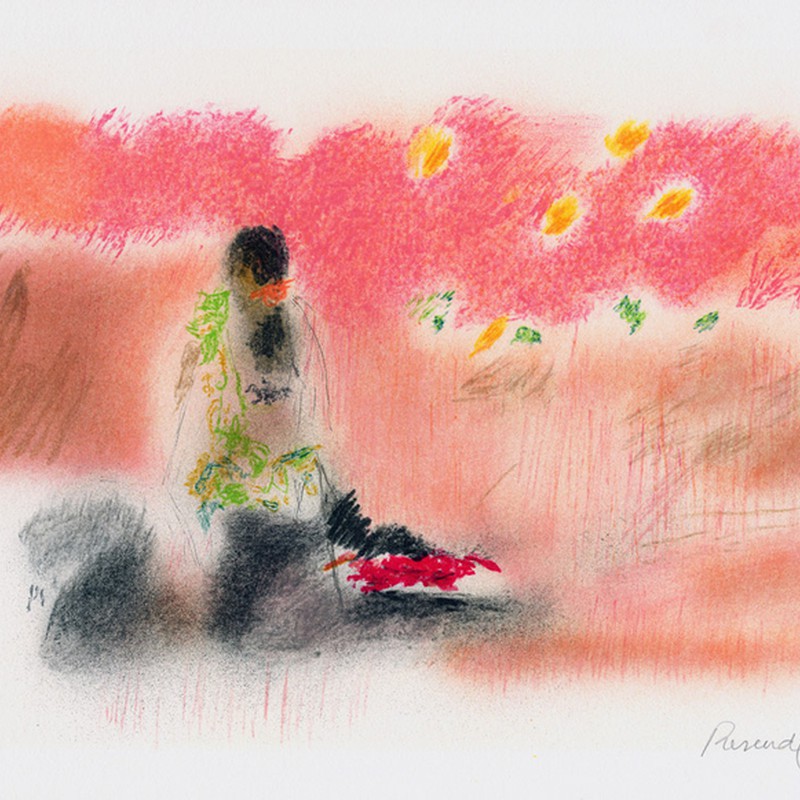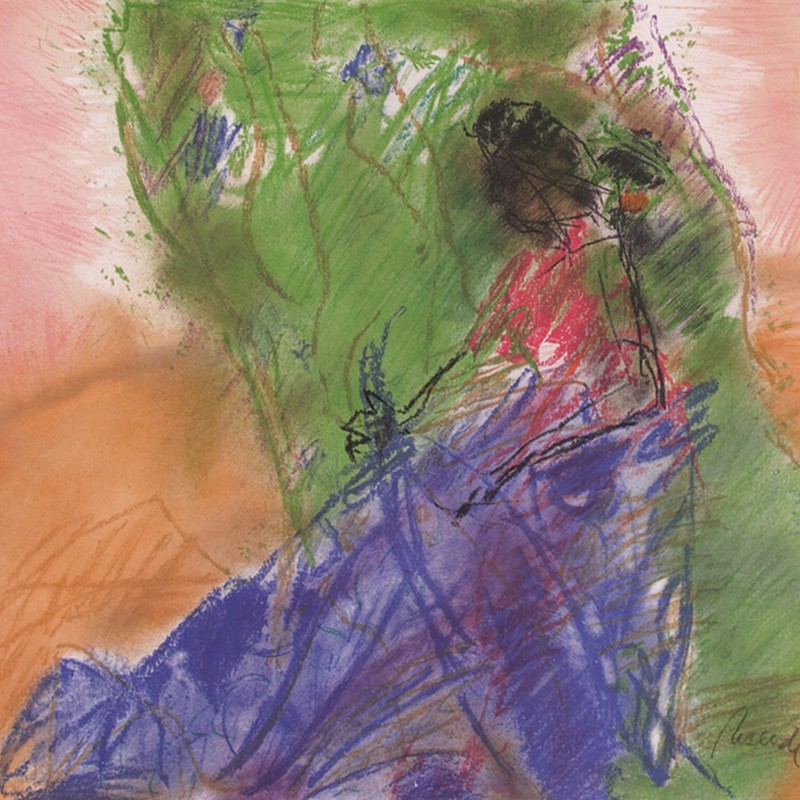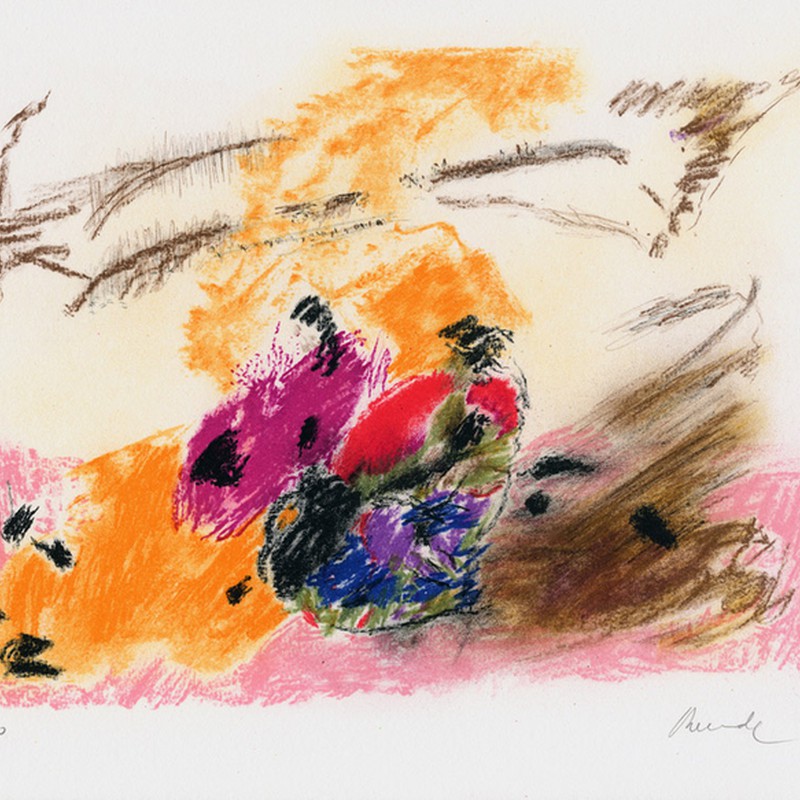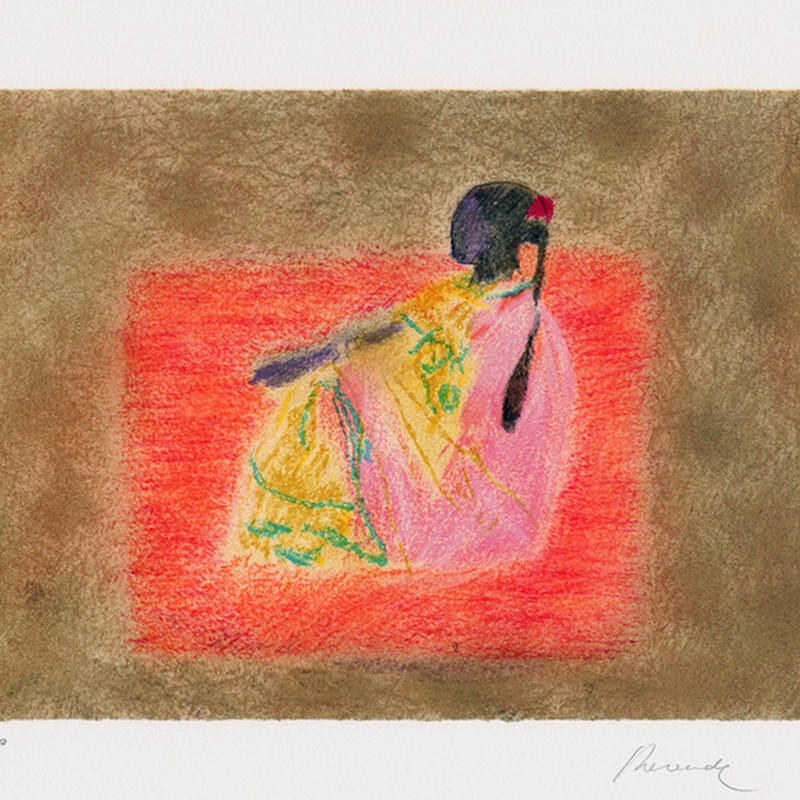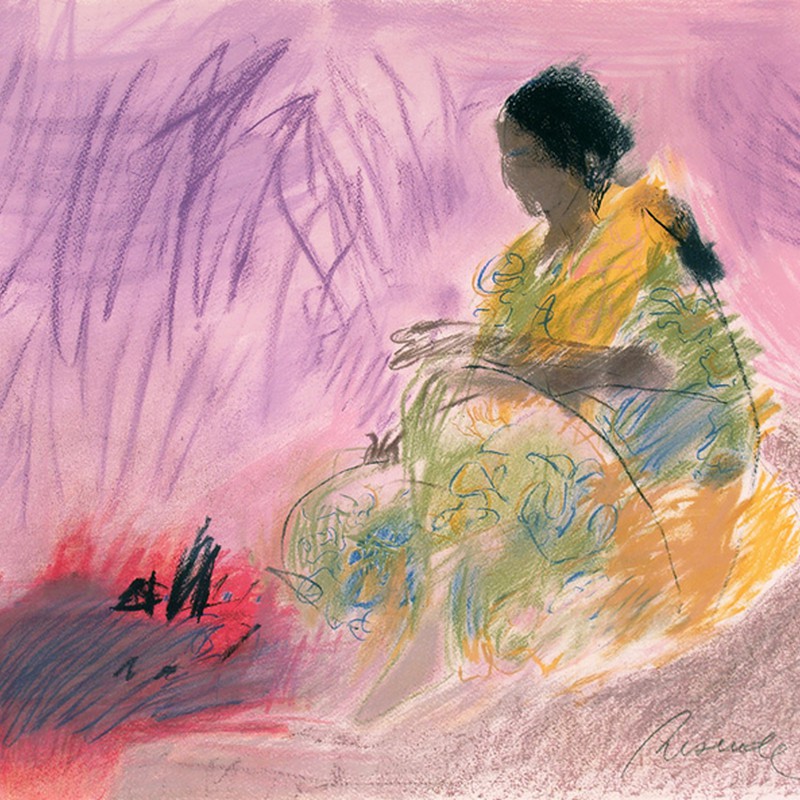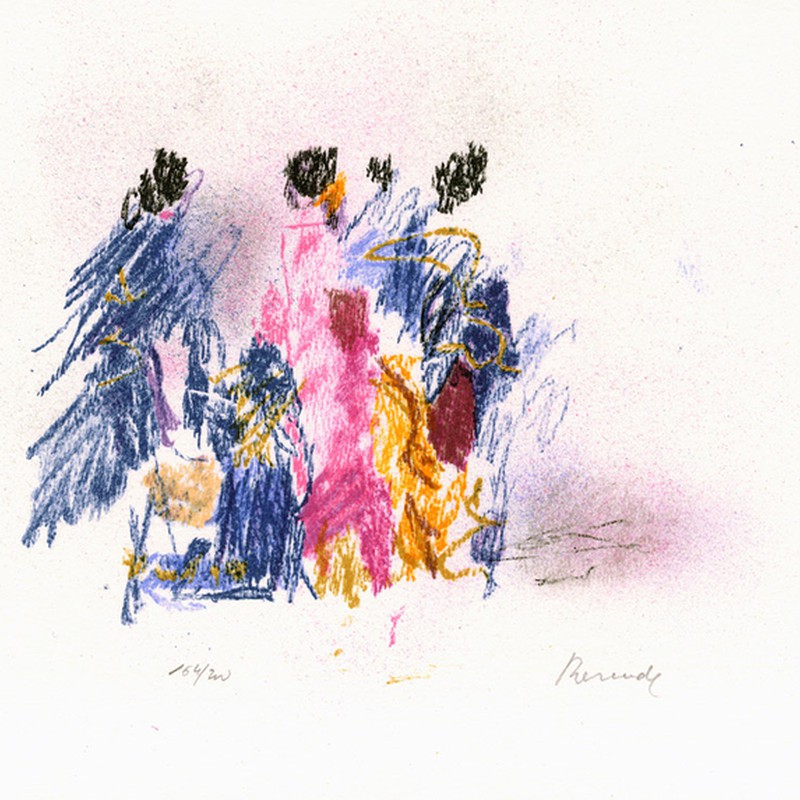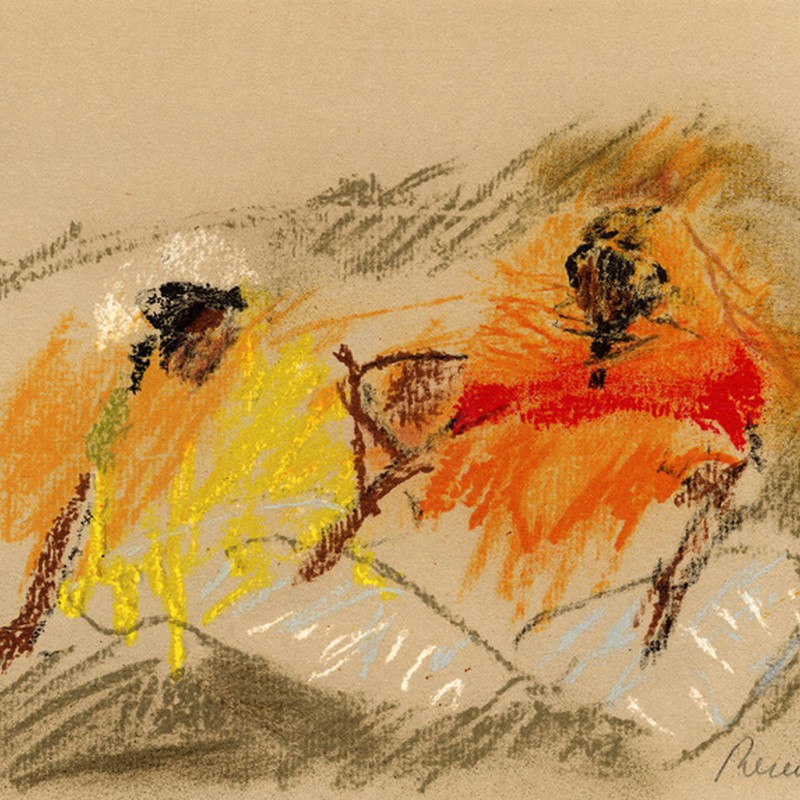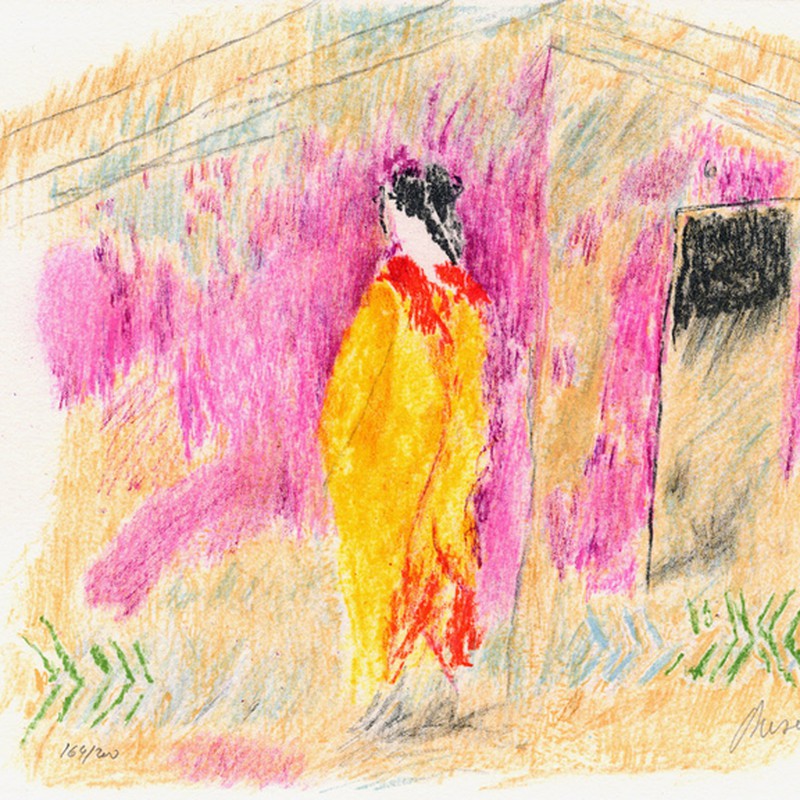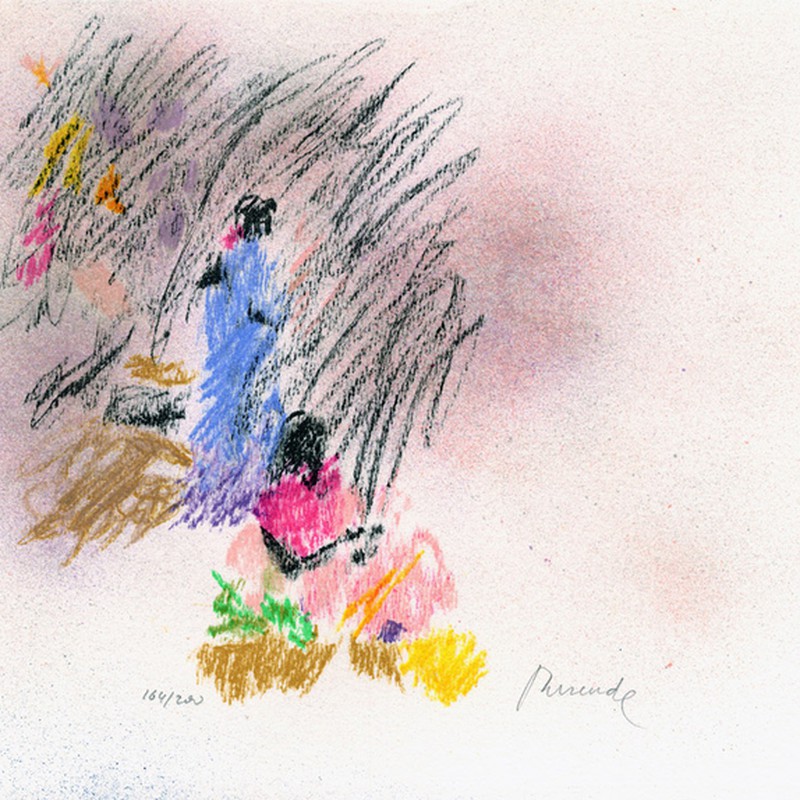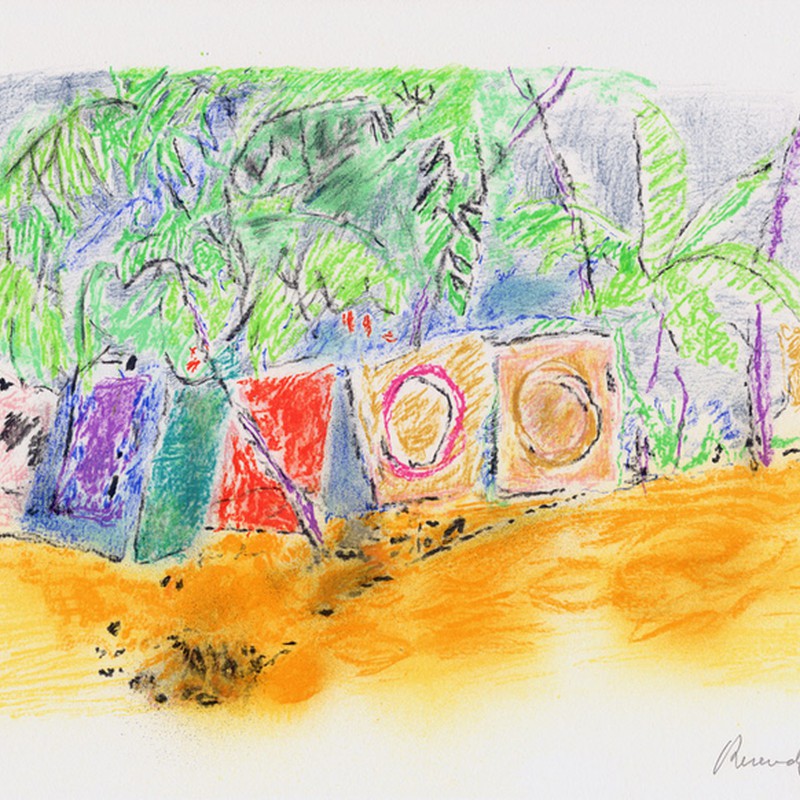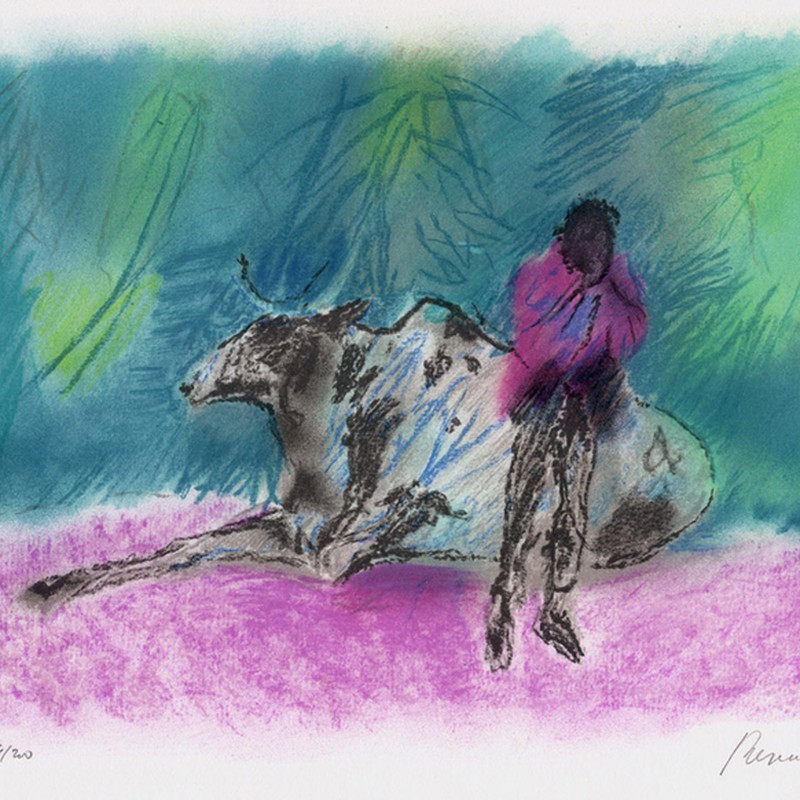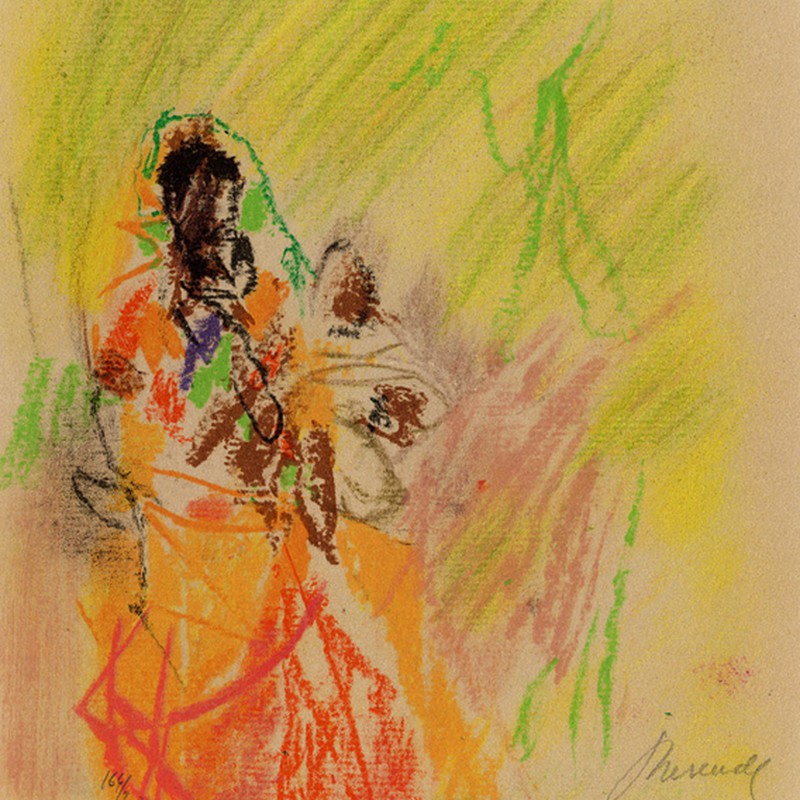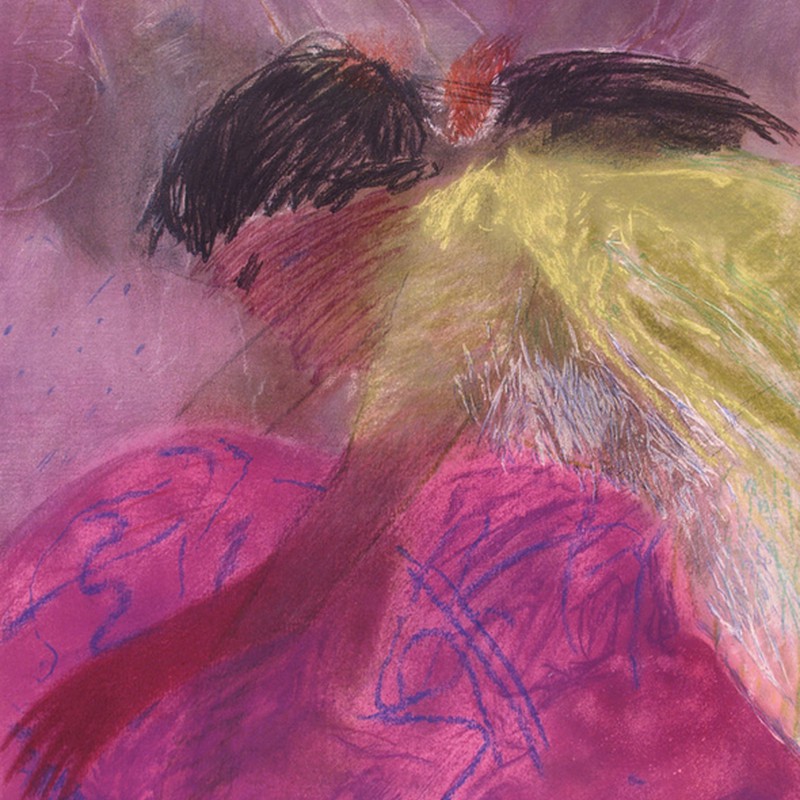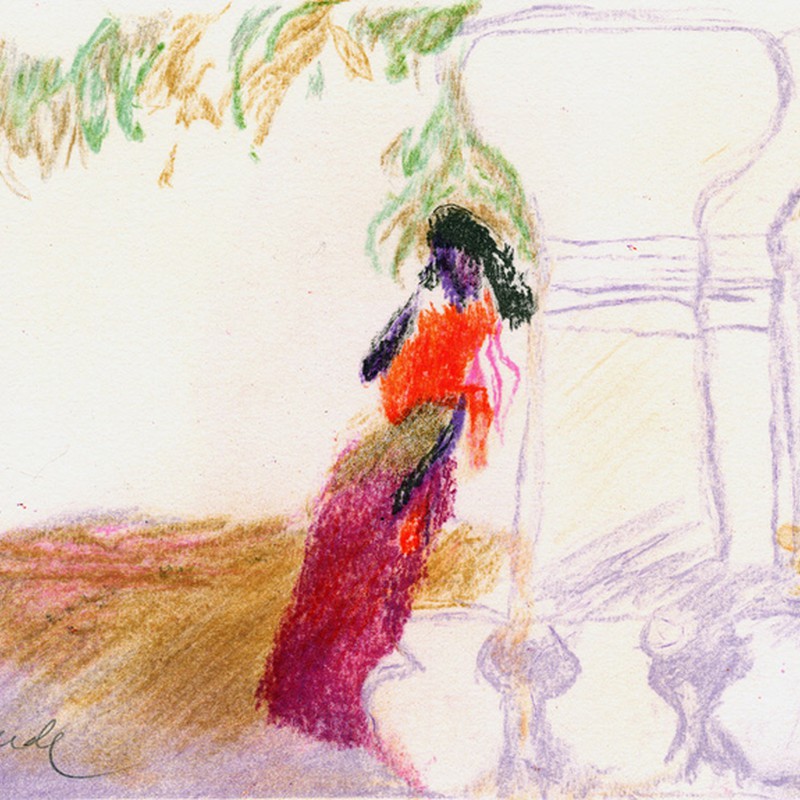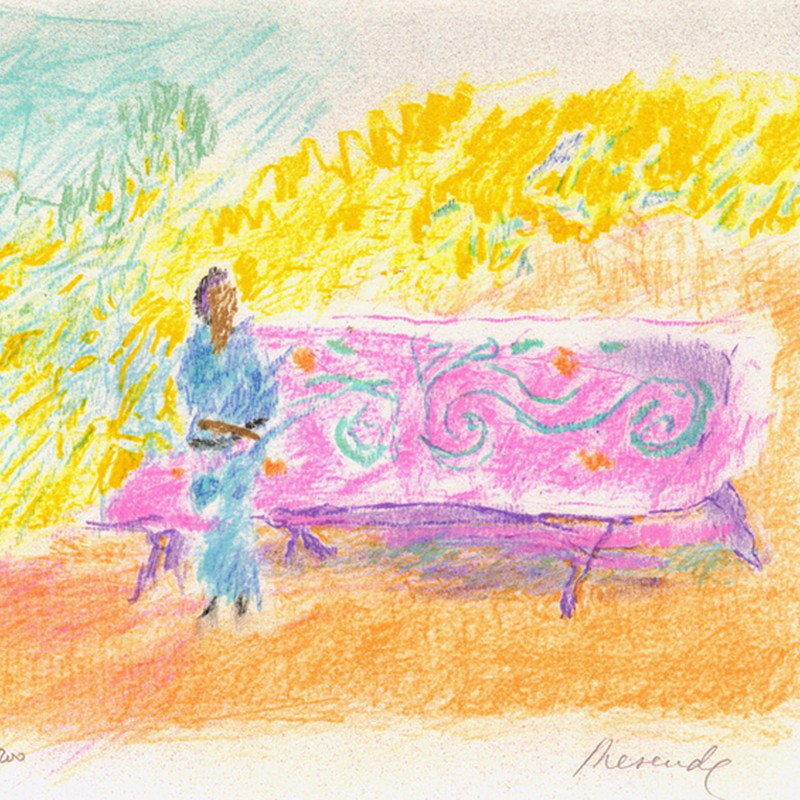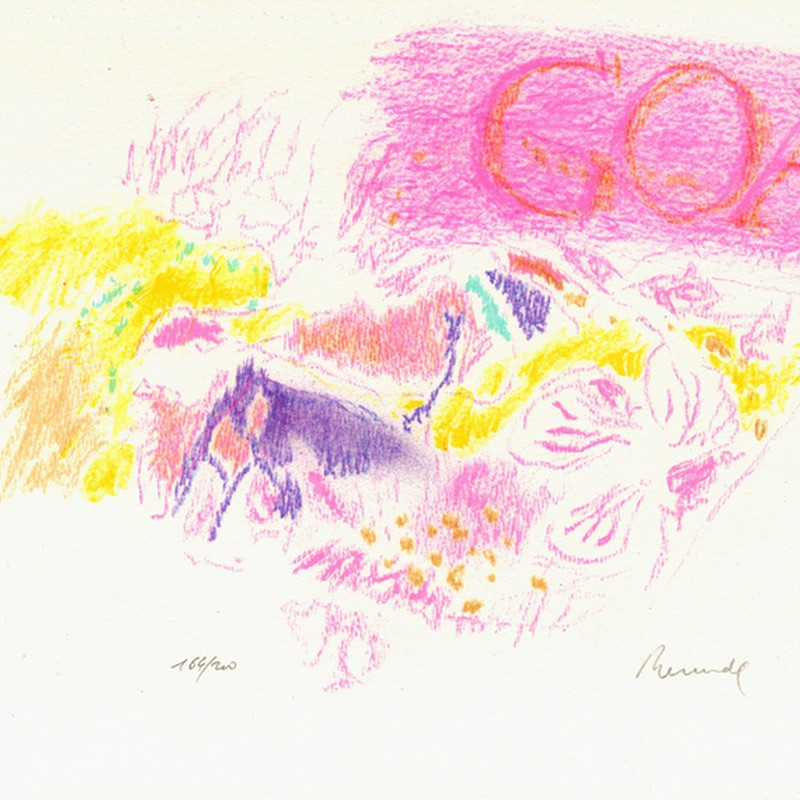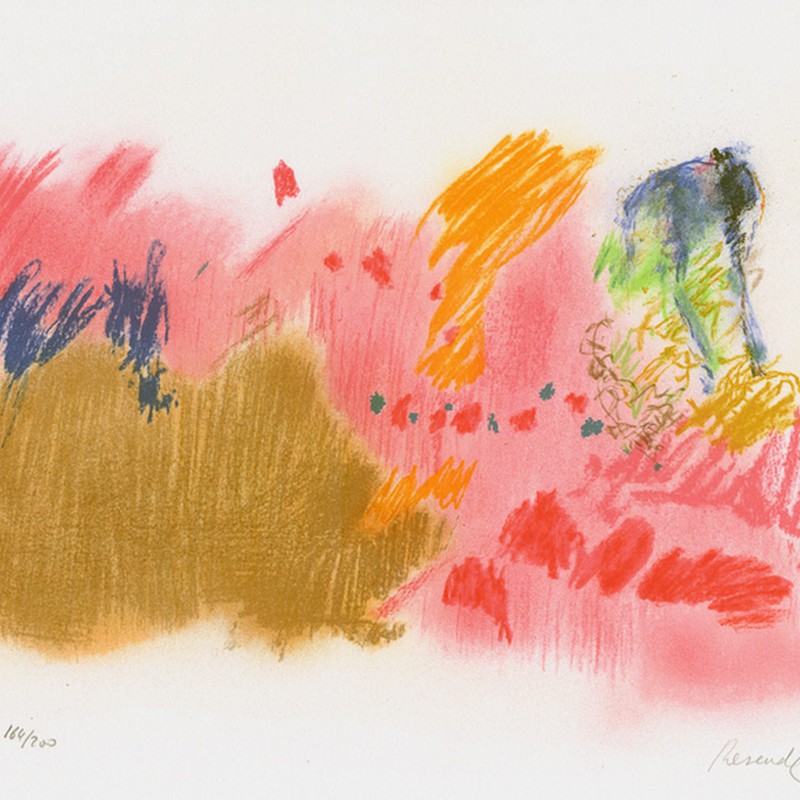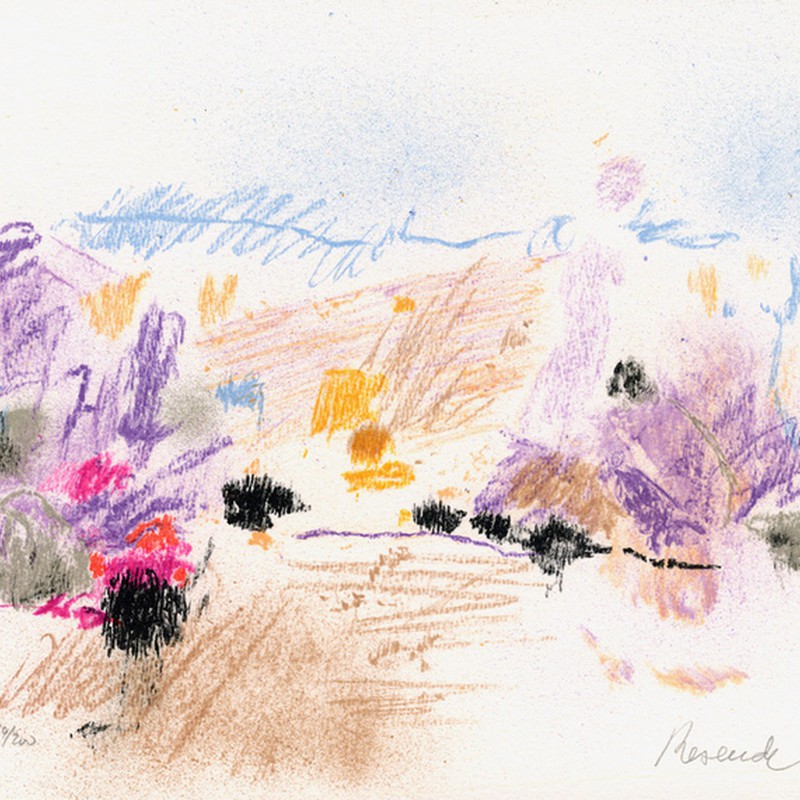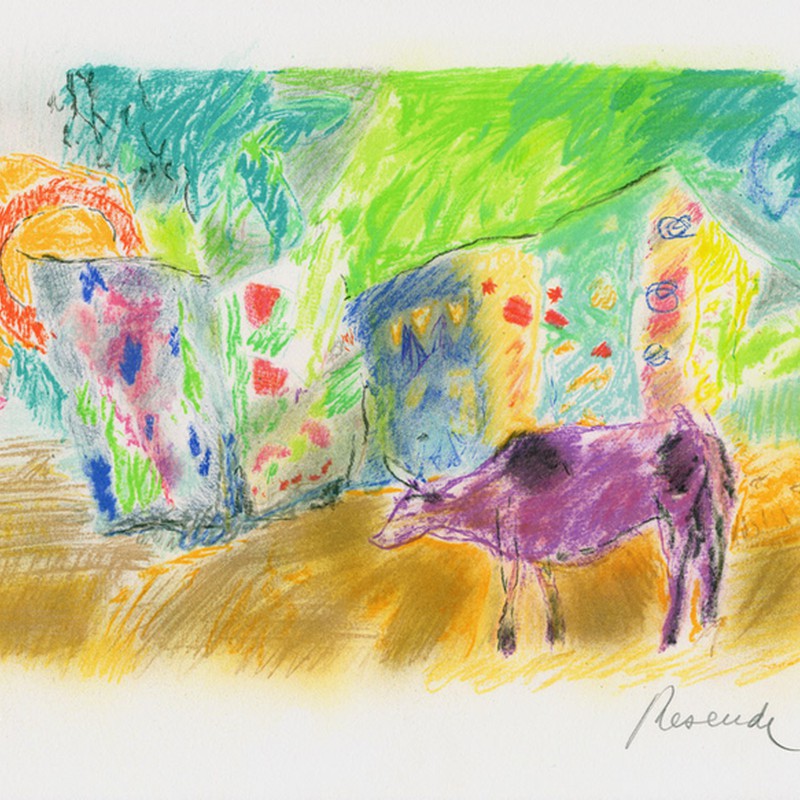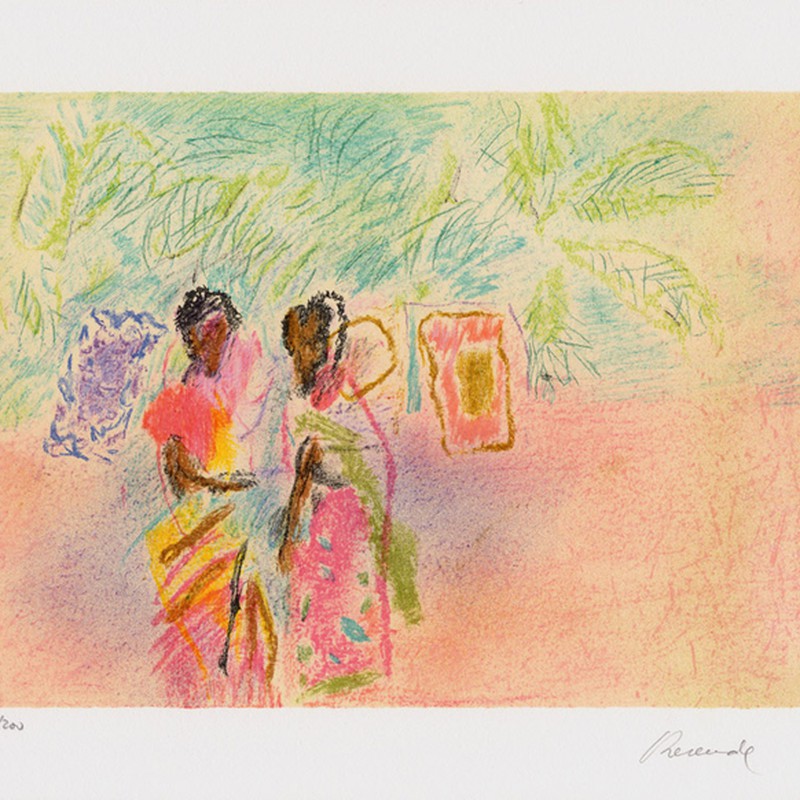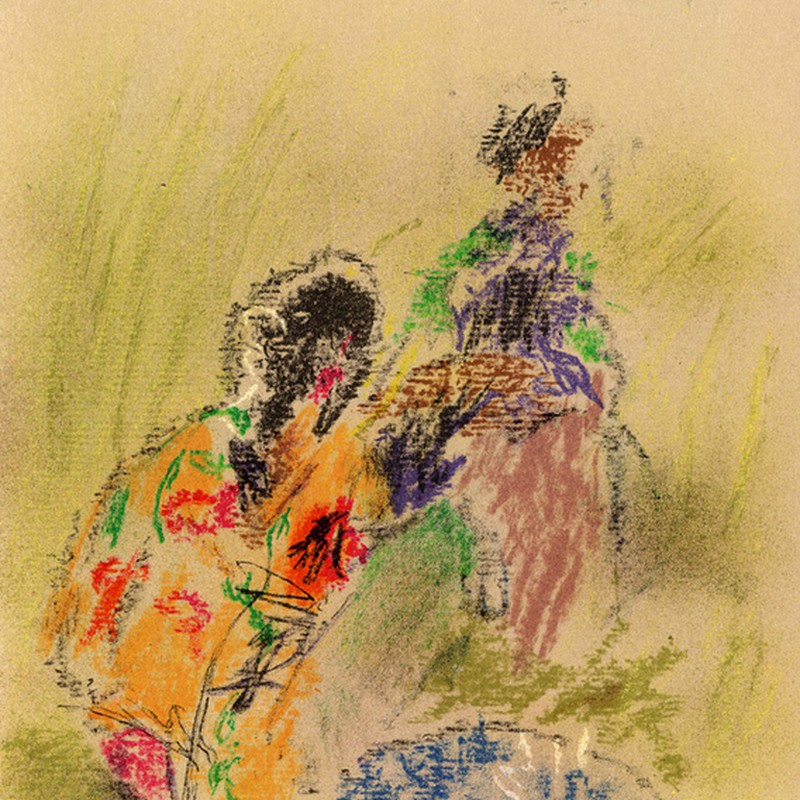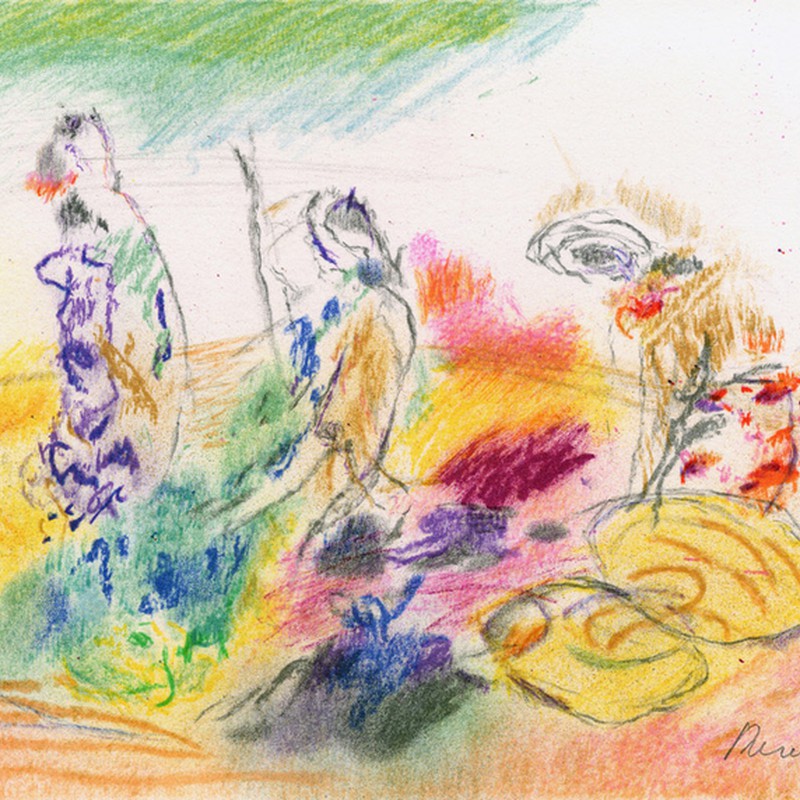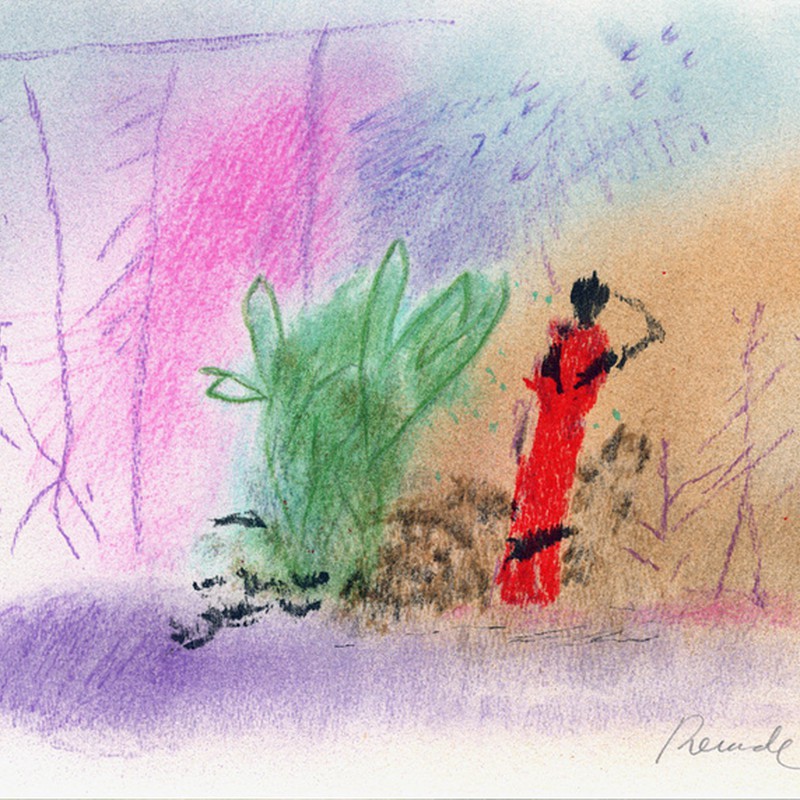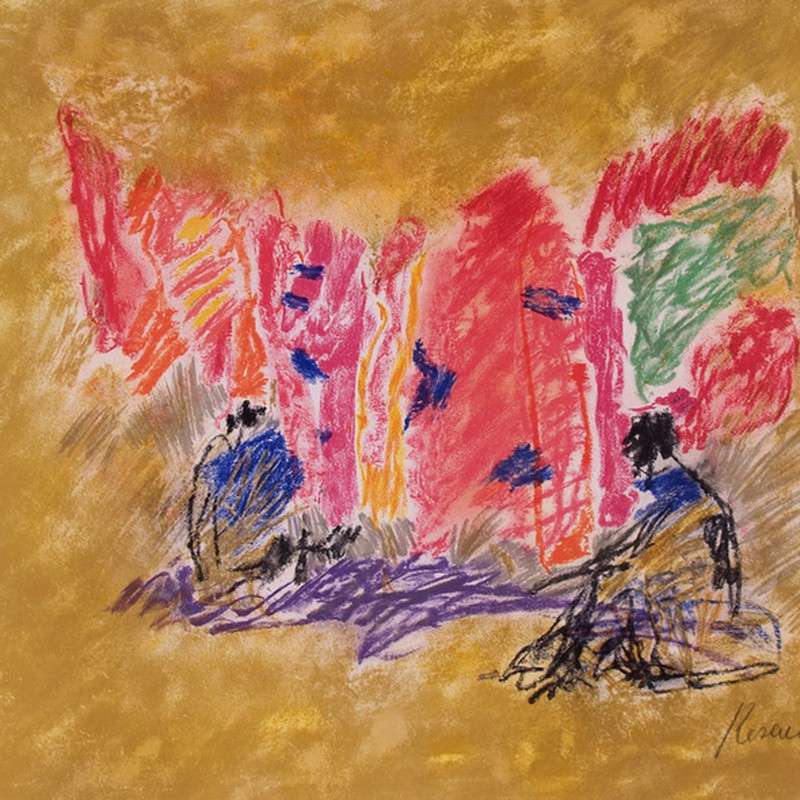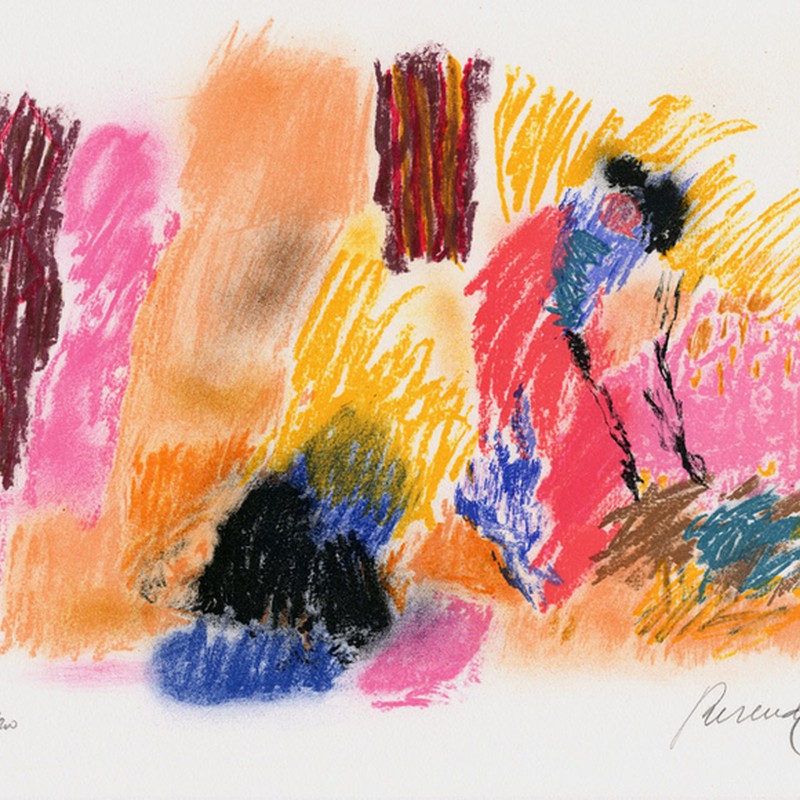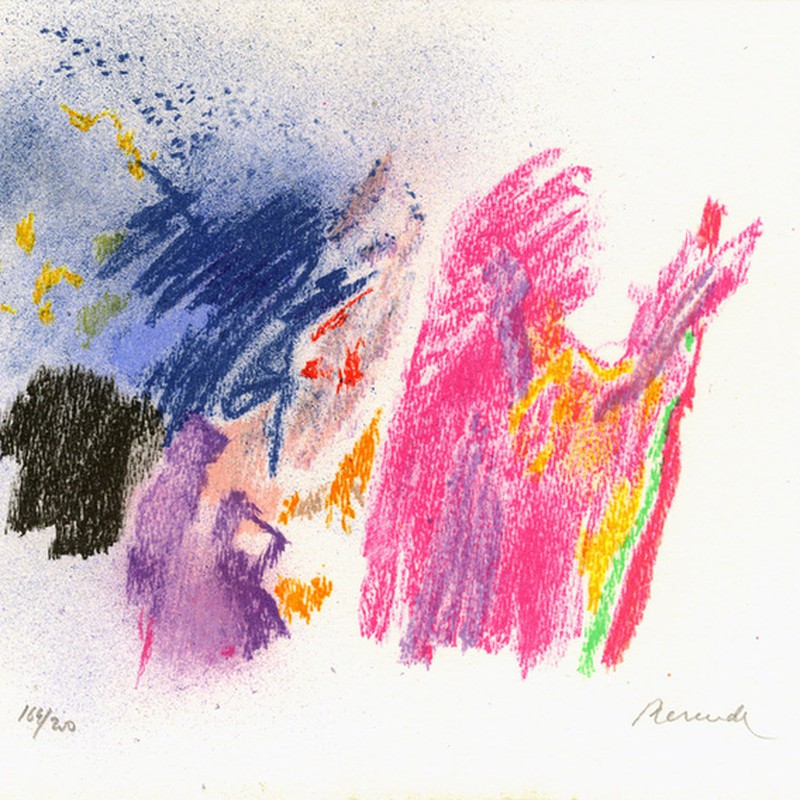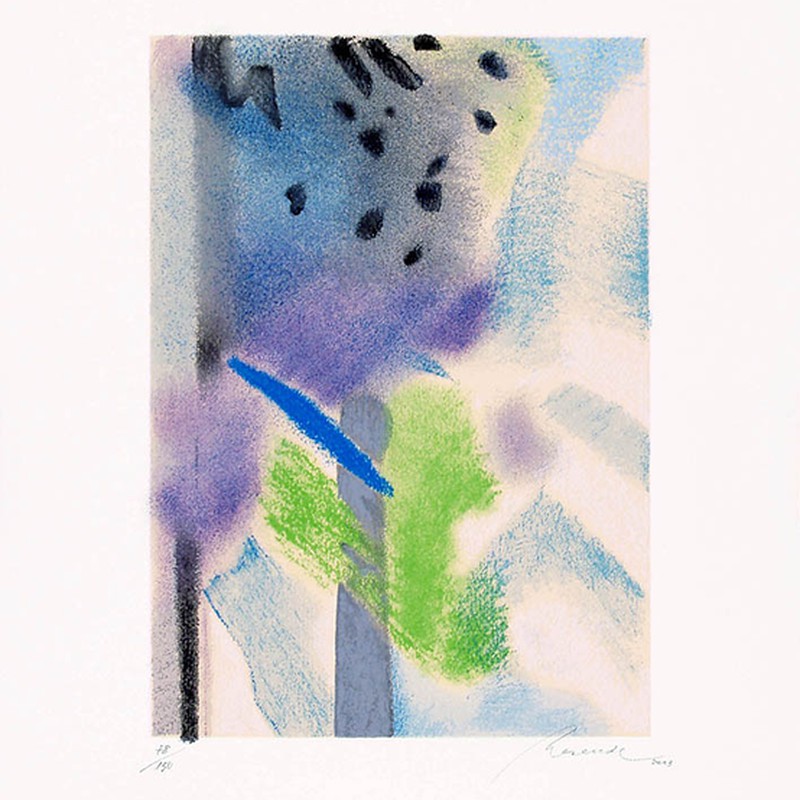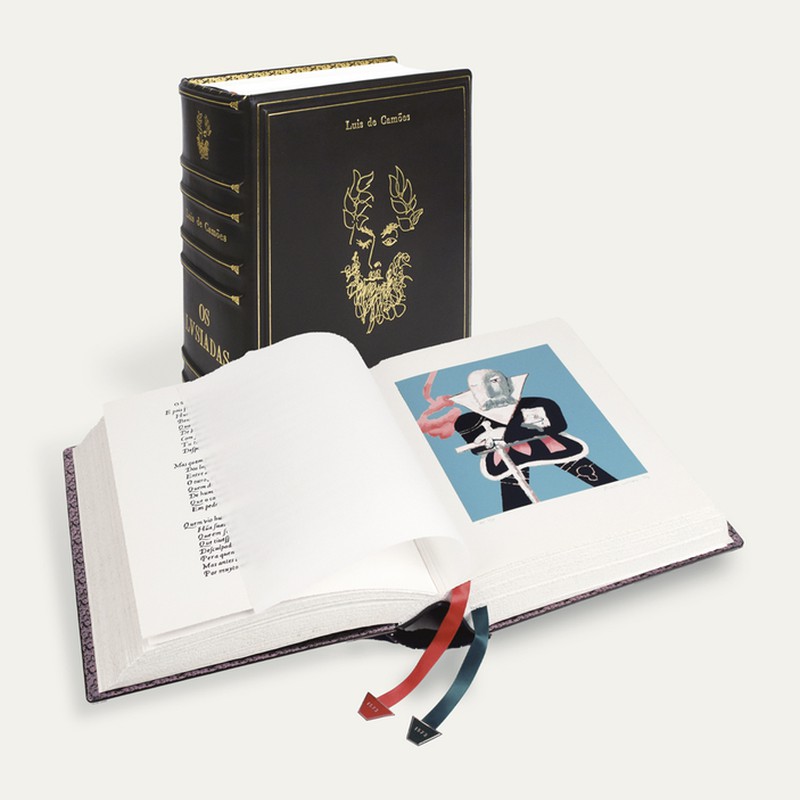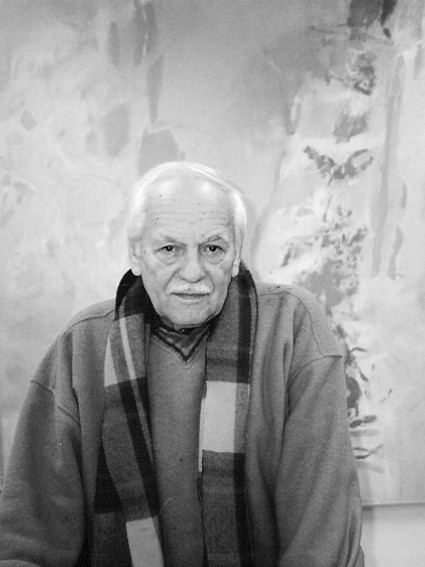
Júlio Resende
Born on October 23, 1917, in the city of Porto.
Between the years 1930 and 1936 he practiced illustrations and comics for newspapers and children's publications.
Attended the Academia Silva Porto in the discipline of drawing and painting.
He graduated in Painting in 1945 from the Escola Superior de Belas-Artes do Porto, where he was a disciple of Dórdio Gomes. He made his first public appearance in 1944 at the 1st Independent Exhibition.
In 1948 he moved to Paris, where he was a student of Duco de la Haix and Otto Friez. the fruit of this work exposed and Portugal in 1949.
From geometrism to non-figurativeism, from gesturalism to neofigurativeism, his artistic path develops at a crossroads of research whose dominant will be: always expressionist and lyrical. A painter of transition between the figurative and the abstract, Resende also distinguished himself as a teacher, bringing to life his work. Porto school brings a new spirit to students who attended, in the 1960s, the Escola Superior de Belas-Artes do Porto.
In 1962 he painted the fresco mural in the Palace of Justice in Porto. In 1965 he created sets and costumes for "Auto da Índia" by Gil Vicente, staged by Carlos Avilez for TEP, Porto. In 1966 he created a fresco for the Court of Justice in Anadia. In 1967 he created sets and costumes for "Fedra" by Racine, staged by Carlos Avilez for the Teatro Experimental de Cascais. In 1968 he illustrated "Apparition" by Virgílio Ferreira. In 1968 he created the scenery and costumes for the ballet "Judas", choreography by Agueda Sena and Companhia de Bailado da Fundação C. Gulbenkian, Lisbon. In 1969 he created six stoneware panels for the Palace of Justice in Lisbon.
In 1972 he was appointed Member of the Royal Academy of Belgian Sciences, Letters and Fine Arts, Brussels, where he delivered a speech and in 1973 received the rank of Officer of the Order of Santiago da Espada. In 1974 he held management roles at ESBAP and created the set for the film "Cântico Final" by Manuel Guimarães, an adaptation of the novel by Virgílio Ferreira. In 1981 he created the stained glass windows for the Nª Sª da Boavista, Porto.
In 1982 he received the insignia of Commander of "Civil Merit of Spain" awarded by the King of Spain. In 1985 he was awarded the AICA Prize.
In 1989 he developed a retrospective exhibition at the Fundação Calouste Gulbenkian, Lisbon.
Between 1994 and 1995, he created ceramic panels for the Lisbon Metropolitano station, "Sete Rios".
In 2007 he was honored at the XIV International Art Biennial of Vila Nova de Cerveira.
He passed away at the age of 93, on September 21, 2011, in Valbom, Gondomar.
